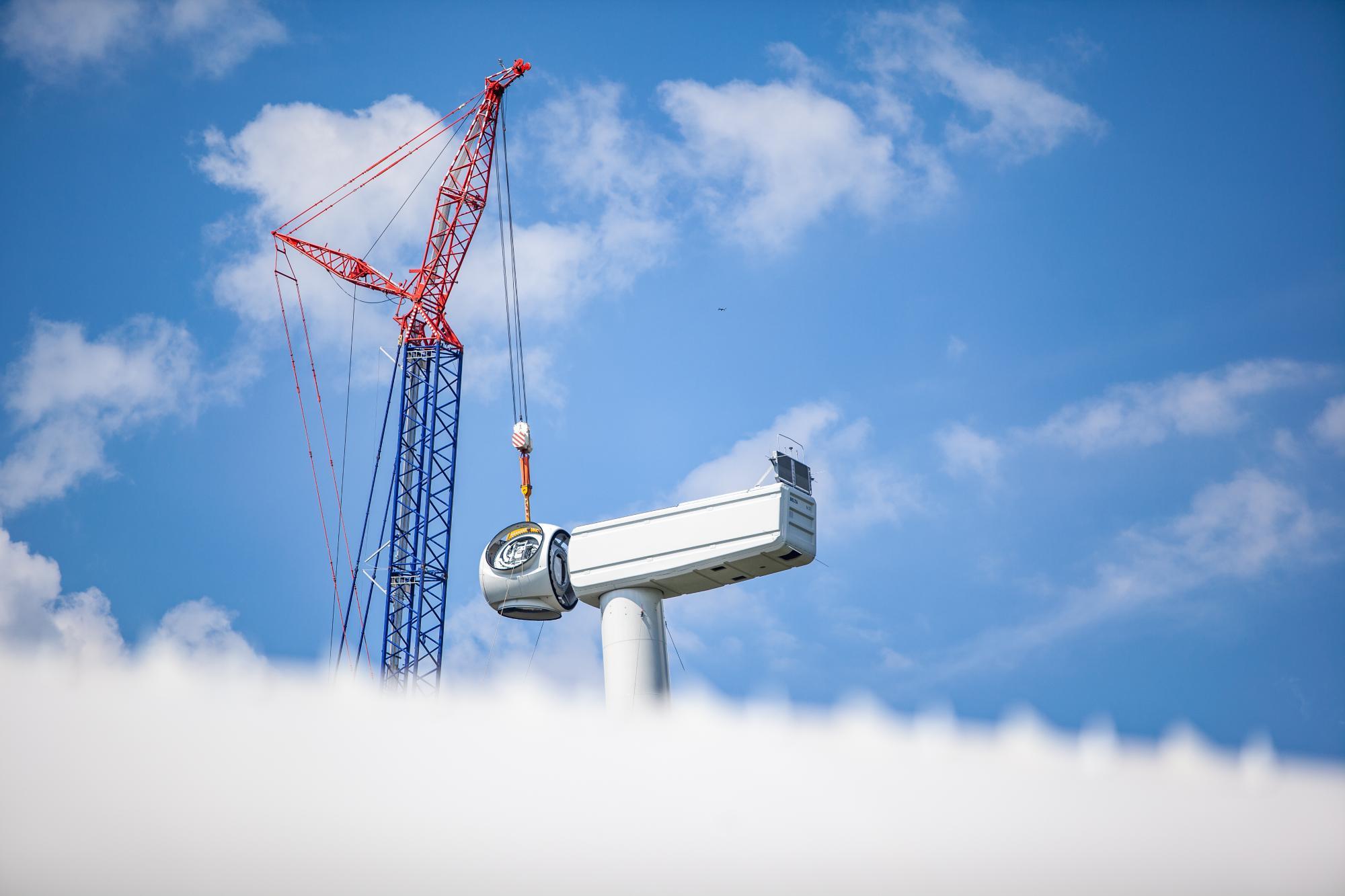In Poland renewable energy gets a boost as a change in legislation attracts international investors—and shows the way for the green transition
Along a 50 km stretch of the Baltic Coast in Poland, 29 wind turbines are under construction. Their tall, white towers overlook picturesque hillsides populated by moose, deer and rabbits. When they’re completed, they’ll supply enough clean electricity to power 138 000 Polish homes.
“I’m very proud of the way our wind farm shows that nature and electricity generation can exist side by side,” says Diana Kazakevic, head of the Poland region for Ignitis Group, the Lithuanian energy company listed in Vilnius and London that’s building the wind farm. “In Poland, electricity has so often not been good for nature.”
The Ignitis wind farms in Pomerania are part of a new move towards clean energy in Poland, a country that still obtains almost all its energy from polluting coal. The European Investment Bank signed three Polish wind farm loans in 2020 and a solar power deal, too. “Poland is under some pressure, because of climate change,” says Roland Schulze, managerial advisor for low-carbon energy technologies in the European Investment Bank’s renewable energy division. “The European Investment Bank is at the forefront in helping Poland transform its energy sector.”
Renewable energy became a more attractive investment in Poland two years ago, when the government changed the legislation for energy contracts. Under the new law, companies make their bid based on the price at which they propose to sell electricity. If the market price drops, they’re guaranteed that price. If it goes higher, they pay the difference to the government.
New Poland renewable energy deals
The Ignitis project was one of the first deals to be made under the new law. “Poland is becoming almost a trendy country for renewable energy investment,” says Kazakevic. Financing from the European Investment Bank, which loaned almost €60 million to the project, showed “that we have partners with a green sustainability agenda,” she adds. The loan is backed by the guarantee of the European Fund for Strategic Investments, the financial pillar of the Investment Plan for Europe.
The Bank also signed renewable energy deals in 2020 across Poland for:
- Construction and operation of four wind farms near Poznan in the administrative region of Wielkopolskie, a cohesion priority area. The €42 million deal, alongside Landesbank Baden-Württemberg, is also backed by the European Fund for Strategic Investments and will produce power for 60 000 households.
- A portfolio of 66 small-scale, independent photovoltaic plants across the northern-central part of the country. Also backed by EFSI, this deal with another Lithuanian company, asset manager Lords LB, was for €18 million and will save 47 000 tonnes of carbon dioxide annually.
- A loan to PGE Polska Grupa Energetyczna for €64 million to finance the construction of wind farms along the Baltic coast and a 30 km transmission line connecting the turbines to the grid.

A clear trend for Poland renewable energy
Poland is not especially suited to renewable energy. It isn’t very sunny and the wind is not particularly strong. Wind projects can make up for this with larger blades on the turbines and economy of scale allows for profitable solar projects, even so. It is the change in the legislation that makes renewable energy such a promising prospect in Poland.
“There is a clear trend,” says Giedrius Ruskys, a project finance loan officer at the European Investment Bank who worked on the Ignitis deal and the solar loan. “Investors are more confident and lenders see the sustainability of the whole support scheme.”
The emerging trend in Poland could have crucial consequences for the European Green Deal. The European Commission’s plan to combat climate change, which it announced in 2020, is based on a commitment to make Europe a net-zero emitter of greenhouse gases by 2050 and to make it clear that economies can grow without increased resource use. But the Green Deal also makes significant provisions to ensure that regions currently dependent on fossil fuels should not be left behind by the transition to clean technology. That’s important for Poland, with its big coal industry.
“We are witnessing the Green Deal in motion,” says Vincent Metzler, another EIB project finance expert who worked on the Wielkopolskie deal. “We can see the potential for a new industry in Poland, particularly for offshore wind. We are a natural player in this sector, which requires a lot of infrastructure—and that’s good for jobs. For a just transition, it makes total sense.”
